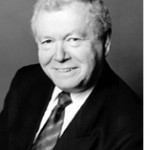By Rabbi Dow Marmur

JERUSALEM — Last December, not long before the date of the next general election in Israel was announced, the two stars of Habayit Hayehudi (Jewish Home), Naftali Bennett (the minister of education) and Ayelet Shaked (the minister of justice) left that political party to form a new one called, Hayamin Hechadash (The New Right). It’s running in the forthcoming election with Bennett and Shaked at the head.
Though he doesn’t refer to it specifically, Professor Yehuda Mirsky of Brandeis University would see in this move a reflection of what he calls, “post-secular Israel.” Habayit Hayehudi was the successor of the old National Religious Party, previously known as Mizrachi. It reflected moderate, even liberal, modern Orthodoxy. But that’s now out of fashion. The New Right sets out to appeal to what Mirsky and others have describes as “Jewraelis.” They are, in his language, “Jews who score high on both keeping Jewish traditions (e.g. lighting Shabbat candles) and national practices (celebrating Independence Day, serving in the IDF).” And, of course, very much more than that.
Mirsky insists that “this is not a return to religion, but yet another instance of what scholars have in recent years begun to identify as ‘post-secularism.’ Not a ‘return’ to religion – but something new.” Much of this is described in a just published fascinating book, Yahadut Yisraelit (Israeli Judaism), by Shmuel Rosner and Camille Fuchs. Rosner is a talented writer and Fuchs a celebrated pollster.
The arguments in the book are based on Fuchs’ data that indicate that some 55% of the Jews in the country are post-secular, compared to 15% Zionists with no interest in Jewish tradition, 17 percent ultra-Orthodox and some 13% who “embrace neither religion nor nationalism.” Mirsky concludes: “In other words, some 70 percent of Jewish Israelis are committed to both national identity and religious tradition in some form or another.”
Many of them were assumed to be on the political right. Bennett and Shaked must have calculated that they’ve a better chance with them than with Habayit Hayehudi. Judging by pre-election polls, however, they got it wrong. Post-secular Judaism seems to be beyond right and left.
I believe that this trend also gives grounds for Reform Judaism in Israel to address itself to the 55, perhaps to the 70, percent of its Jewish population. To do so, however, Reform will have to shed its traditional sympathy for the Labour Party; its executive director is on the Labour list for the next Knesset, but too low down to have any chance to get in. It may also have to deal seriously with the intellectual challenge of the new blend of post-secular cum traditionalist ideology, going far beyond (not against) its current stress on liturgy and tikkun olam (“mending the world”).
The challenge, in the words of Mirsky, is “a new religiously infused nationalism.” It would take “from secularism the idea of politics as something outside religious authority, and from religion the idea that national identity will fade away if it’s not somehow connected, through tradition, and its sheer sense of ultimate truth, to heaven.”
This prompts me to reflect on the return of the Jewish people to history (as the late Emil Fackenheim called it), manifest in the creation of the State of Israel, as a signal of transcendence that calls upon Jews to find new ways of celebrating the miracle. The efforts described above are only early signs. We still have a long way to go, but the process has started. Let’s celebrate by promoting it.
*
Rabbi Marmur is spiritual leader emeritus of Holy Blossom Temple in Toronto, Canada. Now a resident of Israel, he may be contacted via dow.marmur@sdjewishworld.com
*